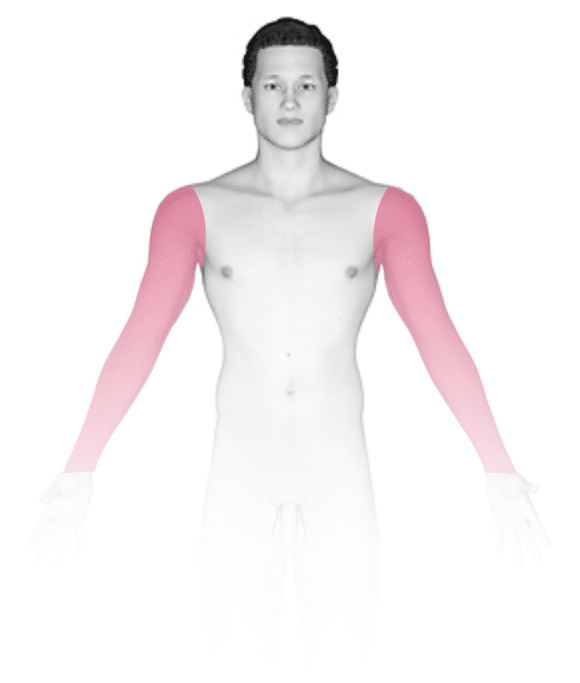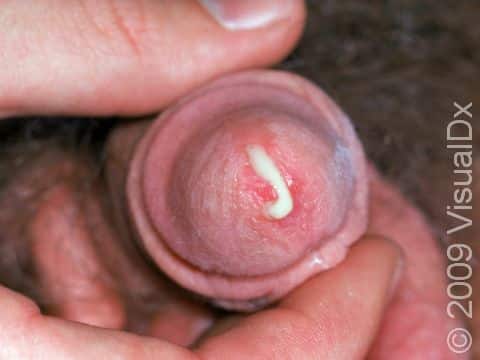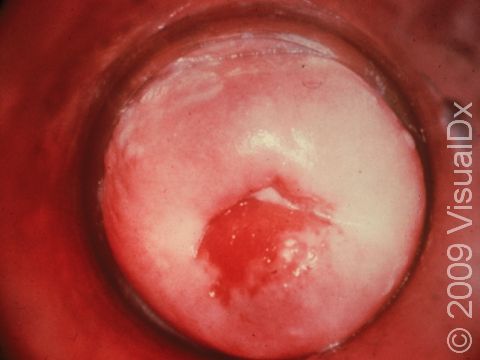Gonorrhea, Primary Infection
Infection with the bacterium Neisseria gonorrhea is commonly called gonorrhea or “the clap.” Gonorrhea is a contagious sexually transmitted disease spread by unprotected oral, vaginal, and anal sex. The bacterium can live in the mouth, semen, or vaginal fluids of infected persons. It is possible to be infected without symptoms and continue to spread the disease.
As with some other sexually transmitted diseases, women are more likely to have symptoms than men; in women, the symptoms include pelvic pain, vaginal discharge, and painful intercourse. Although men rarely have symptoms, it is possible for either a man or a woman to be infected without symptoms. If the infection is not treated, it can spread to other parts of the body, including the throat, joints, and eyes (potentially leading to blindness). In women in particular, an untreated infection can cause pelvic inflammatory disease (PID) and impair fertility. In men, inflammation of the testes (epididymitis) can lead to infertility. It can also be spread to babies during birth by an infected mother.
Because of the risk of spread and the harmful effects of leaving an infection untreated, it is important to discuss your concerns with your doctor and to seek out testing and treatment.
Who's At Risk?
Anyone who is sexually active can get gonorrhea. Remember that many people lack symptoms (are asymptomatic) and do not know they are infected, so it is very important to always practice safe, protected sex. Teens and young adults are at the highest risk for contracting gonorrhea.
Signs & Symptoms
Gonorrhea may display no symptoms, particularly in women.
Infection often starts with only mild symptoms of discomfort with urination. Later there may be frequent and painful urination or defecation; a thick, cloudy, or bloody discharge from the penis, vagina, or rectum; or pain with sexual intercourse. Gonorrhea infection in the throat may present a sore throat only.
Occasionally, gonorrhea infection can spread throughout the body and presents with symptoms of fever, chills, swollen or painful joints, and small bumps on the hands or feet that may be red or purple. This is referred to as the arthritis-dermatitis syndrome.
Self-Care Guidelines
Gonorrhea is highly contagious and can have many serious side effects if left untreated. If you are sexually active and suspect you have been exposed to gonorrhea, you should seek medical care immediately. You should avoid any further sexual activity and notify any previous sexual partners.
Gonorrhea can be prevented by abstaining from casual sexual activity and using condoms correctly during any sexual contact. If you are in a long-term relationship, make sure that you know your partner’s sexual history or ask your partner to be tested before engaging in sexual activity.
Treatments
A sample of body fluid will be taken for cultures in a lab. Tests may also be done for other sexually transmitted infections that commonly occur at the same time as gonorrhea.
Antibiotics are prescribed for treatment of gonorrhea. Because drug-resistant strains of bacteria are becoming common, it is extremely important that you finish all of the antibiotics and see the doctor again if you still have symptoms after treatment.
Visit Urgency
- There is a discharge from the vagina, penis, or rectum.
- There is burning or pain during urination or defecation.
- You are concerned or know that a sexual partner has similar symptoms or has been diagnosed with gonorrhea.
References
>Bolognia, Jean L., ed. Dermatology, pp.1282-1287. New York: Mosby, 2003.
Freedberg, Irwin M., ed. Fitzpatrick’s Dermatology in General Medicine. 6th ed, pp.1105, 2205-2206, 2208-2209. New York: McGraw-Hill, 2003.
Last modified on August 16th, 2022 at 2:45 pm

Not sure what to look for?
Try our new Rash and Skin Condition Finder

